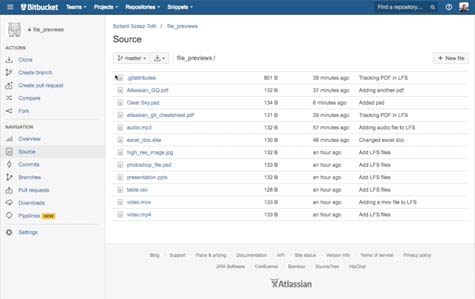At the Atlassian Summit 2016 conference today, Atlassian announced that it’s moving to reduce the amount of friction IT operations teams experience when moving between various tools and computing platforms.
Starting with updates to a Bitbucket hosting service for managing software development projects, Atlassian announced it is making beta versions of both the pipeline management feature directly inside Bitbucket as well a new Git Large File Storage option that makes it simpler to manage large binary files as well as rich media.
For IT organizations that still prefer to manage software development on premise, Atlassian has also announced updates to its Atlassian Data Center software that can now manage external software development projects occurring on Amazon Web Services. In addition, Atlassian Data Center now supports the SAML 2.0 single sign-on standard alongside a beta release of a HipChat collaboration feature that enables IT operations teams to communicate in real time.
Finally, Atlassian is updating the Jira Service Desk to make it simpler to provide different levels of IT service to different departments inside and out of the same organization, including an ability to attach different service level agreements (SLAs) to those services. Datadog, VictorOps and Forty8Fifty Labs, a unit of VeriStor Systems, have all announced tighter integration between their respective IT management offerings and the Jira Service Desk.
Cameron Deatsch, head of server marketing for Atlassian, says that, in general, thanks to the rise of DevOps, there’s more effort than ever to integrate all tools most IT operations teams need to navigate between.
“DevOps is what is allowing all this to be pulled together,” says Deatsch.
IT organizations, of course, now need to decide to what degree they want to erase the boundaries between various DevOps toolsets. They may opt to standardize on a suite of tools from a single vendor or mix and match tools that have been more tightly integrated using application programming interfaces (APIs).
Naturally, DevOps is one of those chicken-and-egg conversations that is as much about process as it is about technology. But without some sort of DevOps platform actually being in put in place, the chances that the existing DevOps process will change of its own accord are slim to none.




